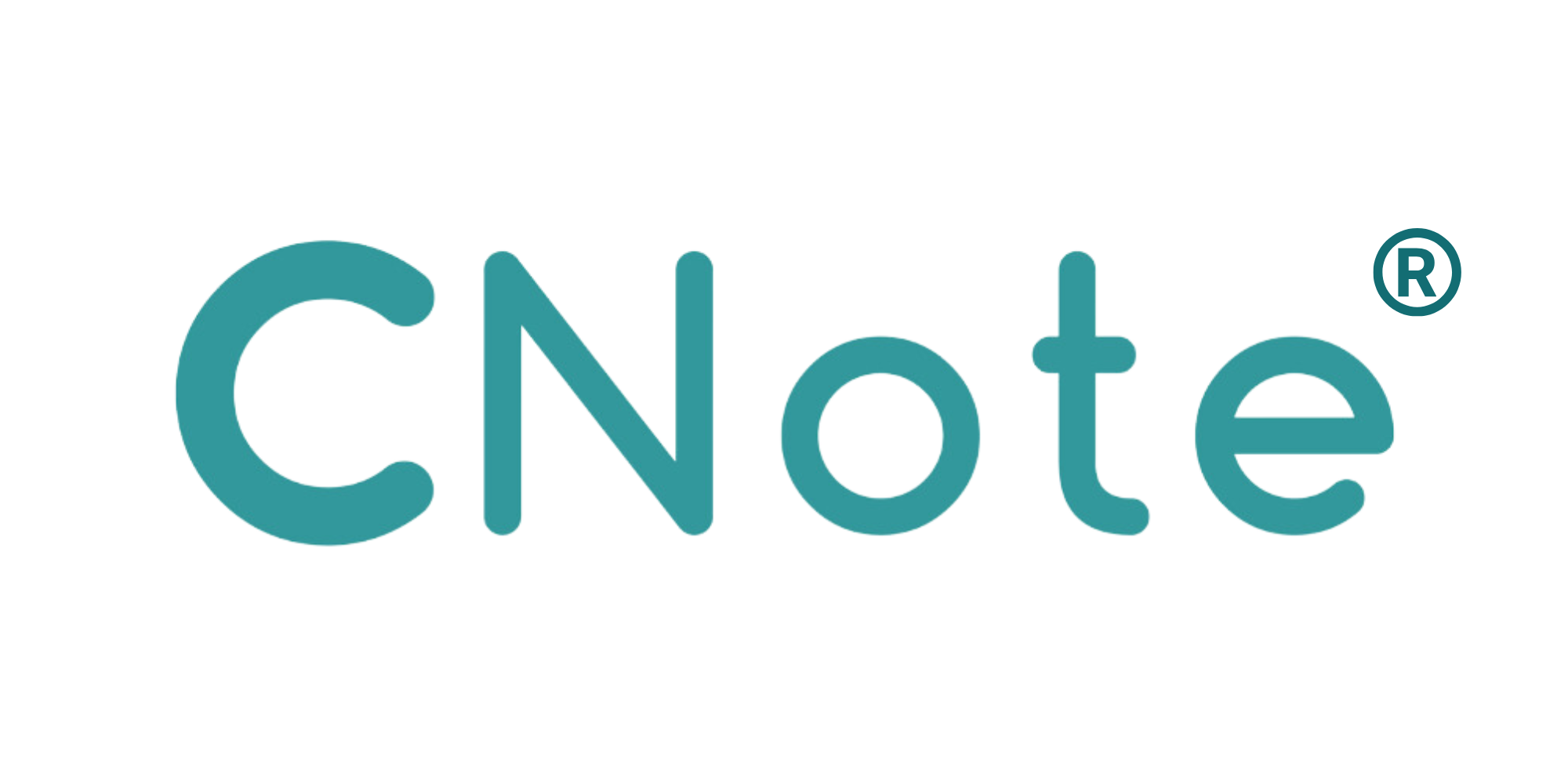Leah Davis is a change maker through and through. She was born in San Jose and raised by a Mexican mother and a Black father. Leah is an adult survivor of childhood domestic violence. Experiencing trauma as a child impacted Leah’s ability to make healthy decisions in many areas of her life, including with her finances and her relationships. In 2013, Leah left a toxic and abusive eight-year relationship: it was her first step toward a future of peace, prosperity, and financial stability.
Today, Leah has over five years of experience as a financial advisor. In early 2020, Leah began providing wealth and wellness coaching to women of color. Through a trauma-informed approach, Leah works with her clients to shift from fearful and harmful habitual thinking patterns to unlock their power, move toward an abundance mindset, and learn about the wealth gap as they implement healthy habits with managing money
We caught up with Leah to talk about financial abuse, her approach to coaching, and her clients’ unique challenges, and we got the chance to hear her thoughts about why entrepreneurship makes sense for women of color who struggle to be seen and heard in the workplace.
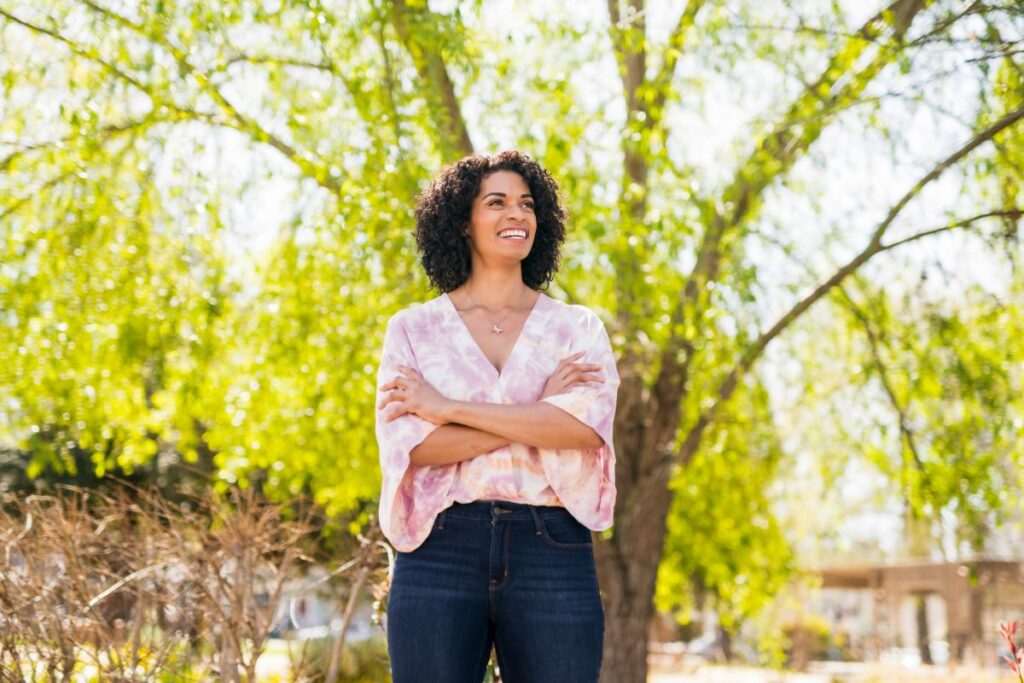 CNote: What led you to become a financial coach for women of color?
CNote: What led you to become a financial coach for women of color?
Leah Davis: I found this organization called Closing the Women’s Wealth Gap. They introduced me to my mentor Saundra Davis of Sage Financial Solutions. She had one of her coaches who was going through the Financial Fitness Coach certification program and needed to get in his coaching hours. She asked me if I would do it, and I said “sure.” That was a game-changer for me. When I had my own financial coach, it really came to light that I had so much baggage, barriers, self-doubt, beliefs, and all of these things that were preventing me from really moving ahead in my life — even though I had all of this education and experience as a financial advisor.
At the time, I really wanted to do something for women of color in financial services, but I didn’t quite know what it would be. At this same time, I became a certified domestic violence advocate after taking 65 hours of training at a local women’s shelter. That was also eye-opening for me. So between that certification and the coaching, I thought maybe I could coach women of color. Then, it just all came together. I started the process to build my business as a wealth and wellness coach for women of color.
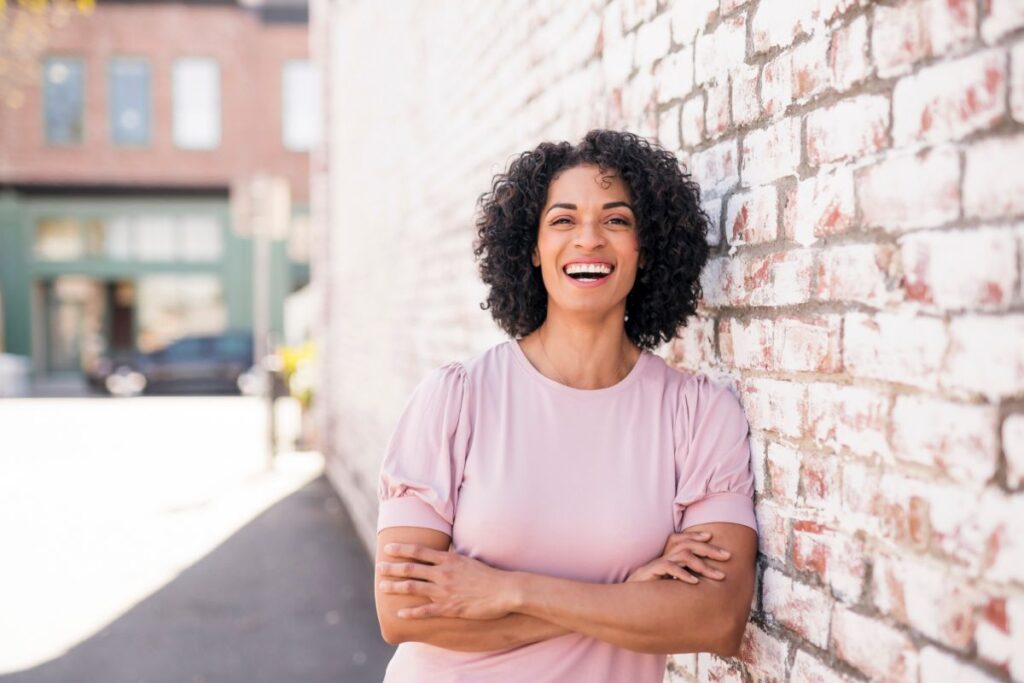 CNote: When a lot of people think about abuse, they think of domestic abuse, but can you tell us a bit more about financial abuse?
CNote: When a lot of people think about abuse, they think of domestic abuse, but can you tell us a bit more about financial abuse?
Leah Davis: Financial abuse is another way abusers assert power and control, and it’s why many victims will go back to the harm doer. On average it takes a victim seven times to leave before not going back to the abuser for good. The CDC estimates a female survivor will incur about $104,000 in medical bills and lost productivity at work across her lifetime. Then, on average, the harm doers will steal about $1,280 from survivors every month. On top of that, harm doers, on average, will incur about $15,900 of coerced or fraudulent debt in the survivor’s name, meaning credit cards or things that affect her credit. So, even if someone leaves the abuse and ends the relationship, a woman might have to deal with the financial insecurity and abuse and trauma component for a long time, which impacts her ability to achieve what she’s working toward.
CNote: Do you primarily focus on wealth coaching or wellness coaching, or do the two go together?
Leah Davis: Oftentimes, I’ll have somebody come to me because she wants to manage her money better and can’t seem to understand why she can’t stick to a spending plan or get out of debt. , Typically in that initial conversation, I find out that there is of course some sort of trauma. Whether or not she wants to go down that path is totally up to her, but, more often than not, it comes up. I can provide all the financial coaching and education available, but really that would just be like a bandaid on a very large wound. So, they go hand-in-hand. I take a holistic approach with my coaching of physical, emotional, and even a spiritual focus to guide women towards feeling safe with money and they no longer second guess the decisions they make.
 CNote: What would you say the need is for this kind of coaching, and are there other coaches like you out there?
CNote: What would you say the need is for this kind of coaching, and are there other coaches like you out there?
Leah Davis: One in three women are at some point in their life going to experience some sort of intimate partner violence. So, the need is huge. There are some coaches that I’ve met who provide similar services, but they might not have gone through a financial coaching certification program. In the financial advisory world, many advisors of color will market toward communities of color, but they don’t typically outright say these are the clients they serve. I am vocal. There are not enough women of color in financial services who are being out and open and saying, “this is the service that I provide other women of color.” We do have unique challenges and experiences in life, so I really champion these services.
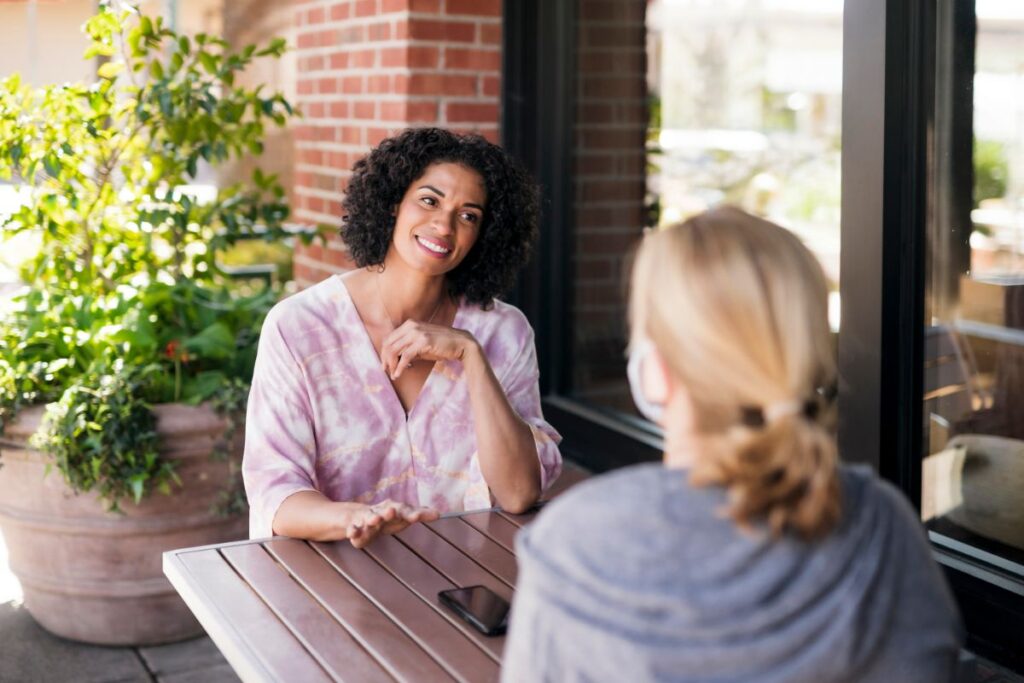 CNote: How has the COVID-19 pandemic affected women of color?
CNote: How has the COVID-19 pandemic affected women of color?
Leah Davis: The virus has disproportionately impacted women of color, and the research shows they’ve been impacted the hardest on the health side. I’m curious about what’s going to happen years down the road and about what impact this has on their mental health long-term, especially those who are in situations where they do not have enough food or they’re stressed about not being able to get a job or being at home with the kids and maybe an abusive partner. There’s just so much that has impacted them the most, for sure, and a lot of them are breaking down, and there’s a lot of them who’re asking for mental health support.
I will say this though: Our communities facing these barriers also have the most hope and resilience. They have what it takes to really do some amazing things. It’s just being able to get them that basic stability — pay the bills, roof over the head, food on the table, transportation, childcare, employment — and they will be alright.
CNote: Thinking for a moment about the clients you serve on the other side of the spectrum — financially successful women of color — what are the unique challenges of coaching those clients?
Leah Davis: I’m part of a group of about 21 professional, successful Black women, and I’m one of the coaches, and these women are learning about credit investing and real estate and options trading, and I’m like, “you ladies are knocking it out of the park.” But, you know, the challenges and experiences are still very similar in some sense, and that’s again because of the trauma that some of these women have experienced. There’s also a pressure that they’ve “made it,” and so there’s a sense of responsibility to be the one to support the family. That’s why for them, it’s important to be around someone who can relate to them to talk to because, in their positions, everyone’s always going to them, and when you’re in a position where you’re the go-to person in your community and it’s take, take, take, take, take, then you overextend yourself financially, and then you’re not setting yourself up for long-term financial stability. So, that dynamic can create unique challenges, but at the same time I remind them that they have the ability to set up boundaries and that’s what we work on.
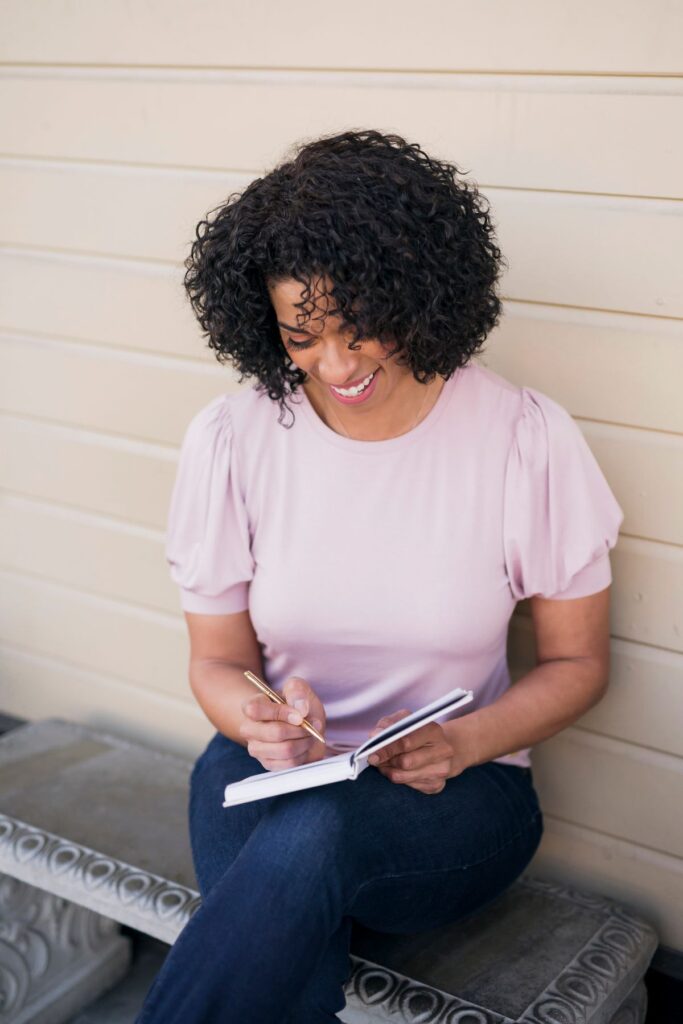
CNote: There seems like an opportunity there for some intrafamilial financial literacy education though, right?
Leah Davis: Absolutely. Oftentimes, the women that I do talk to on this side of the spectrum, they speak a language that’s different than their family understands. So when they do talk about wealth, their family might say “why do you want to talk about that?” or “you’re just all about money.” Quite often, I will say to my clients, “look, just by you being who you are and going through coaching and letting go of some of the trauma in your life, your family is going to see the difference in you, and they’re going to want to have a piece of what you have.” For me, I grew up in an environment where we didn’t talk about our finances or the abuse we endured. There were no conversations about setting goals and saving money. But today, I’ve seen it in my own family, where my family members have started to take better care of themselves financially, emotionally, and even spiritually. So, it’s leading by example in so many ways.
CNote: When you’re doing your financial coaching, do you talk about institutional racism?
Leah Davis: There are things in life that you can’t control, like systemic racism. In the work I do with my clients, I have them understand the wealth gap and the barriers that have been put in place for us so that they can have context to their experience. It’s not all our fault, right? And when you’re able to put context to the circumstances and you have money coming in, then you just feel, I guess freedom is the word. Just an ability to make those informed choices without second-guessing yourself and knowing there is a solution or resource available to help. That is so valuable, having that financial dignity.
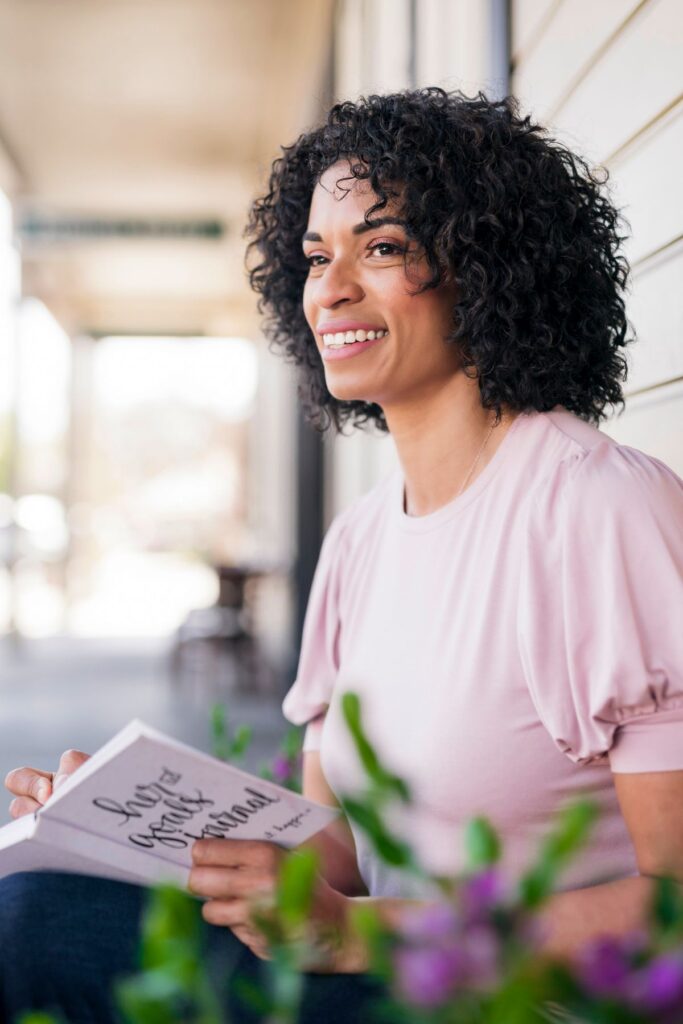
CNote: How important do you think entrepreneurship is for women of color as a path to empowerment?
Leah Davis: So damn important. I say that because there have been countless, countless times where we have to go to work and have to explain ourselves, defend ourselves, advocate for ourselves, explain what we’re doing, not be heard, deal with microaggressions and implicit bias. It’s tiring, and it wears us down. I’ve talked to so many women of color entrepreneurs, and I ask them why they started their own businesses, and they say “because I wasn’t going to do that to myself anymore. Life is hard enough as it is. I want to do what I want when I want the way that I want, and so by having my own business, I’ll be able to accomplish that.”
There just has not been enough movement within the corporate or even the nonprofit world to have the representation of women of color at the table and to have our voices heard. So, having a business and being an entrepreneur is a way of creating the life we want and to not have to deal with the racism and microaggressions, and biases that we experience within the workplace. As it is, we deal with this too much outside of the workplace.
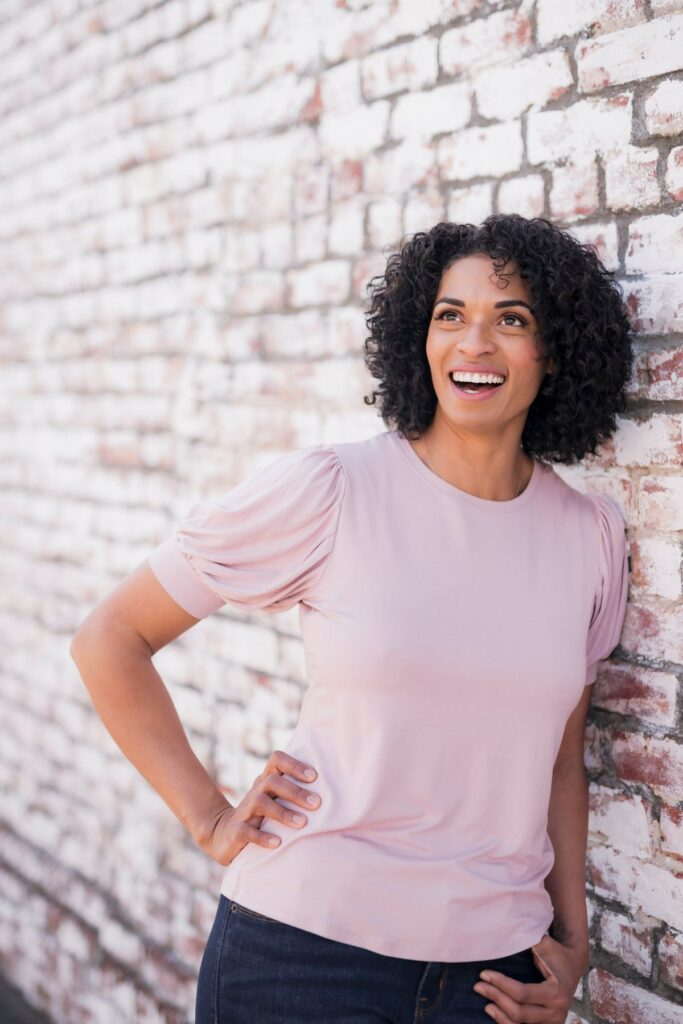
CNote: What’s your vision for the future in coaching women of color?
Leah Davis: I would love to have my coaching style be replicated by other women and it is easily accessible. I envision partnerships with financial institutions and domestic violence organizations, as this trauma-informed financial coaching goes hand in hand with the services that they’re providing women of color. I envision one day there being a more normalized conversation between a financial advisor or financial planner and a woman who has dealt with domestic violence in her life, and that financial advisor understanding what the heck she’s talking about and what she needs, and they’re able to work with her and not turn her away. For me though, I’m creating my wealth legacy for my family. I’m the first one in my family doing what I’m doing, so I’m also open to seeing where this all takes me. I’m following my gut, and I’m learning as I go.
